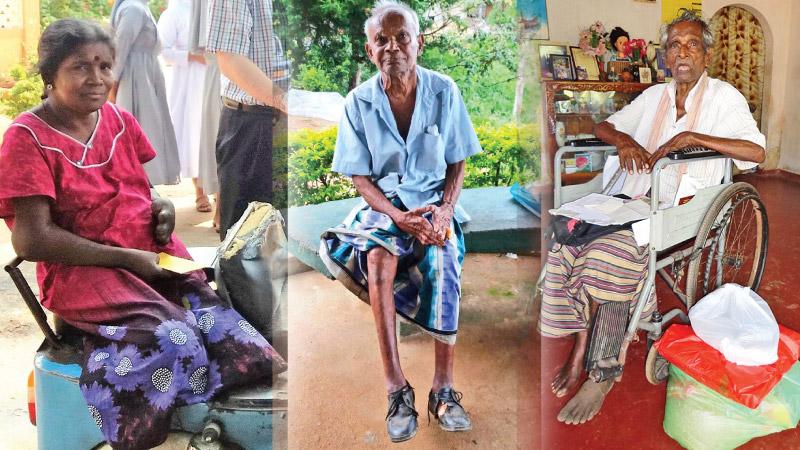
Beaten by disease and society, leprosy patients in Sri Lanka are in need of a strong helping hand. SUROL, an organisation dedicated for the uplift and rehabilitation of leprosy affected persons has organized a dinner with a difference to raise funds for the cause
The disease has been there from time immemorial. It had been a disease humans feared for millennia for good reason. It has been viewed as a curse and those affected by the disease have been treated like outcasts. Leprosy was a disease with stigma attached to it. Modern medicine has already found ways to contain leprosy diminishing its ability to spread within the human body. Many countries have eliminated leprosy from their lands altogether.
However, in Sri Lanka there are people throughout the country who still suffer from the effects of leprosy.
“We work with leprosy affected people throughout the country,” says Aloy Joseph, Office Manager of the Society for the Upliftment and Rehabilitation of Leprosy Affected People (SUROL). He had been involved with the organization for over 10 years. A charity dedicated to the leprosy affected people, SUROL provides medical, financial, material and psychological support for persons who had faced advanced stages of leprosy and therefore, affected with deformities.
Historically, persons suffering from leprosy were treated in isolated hospitals such as the Leprosy Hospitals in Hendala and Maanthivu, Batticaloa. Years of treatment contained the disease and declared them non-infectious. However, it left them disabled and maimed most of the time.
Though leprosy is a curable disease with over 95% curing rates at present, this depends on timely identification and treatment. Lack of awareness of the disease, poverty affecting access to healthcare and stigma attached to the disease are reasons behind advanced stages of leprosy in patients, according to Joseph.
“The reason we have selected persons with deformities is their inability to be employed. They cannot work, for no one would give them employment. Though what we give them as financial support is a stipend, for them it is a big amount to sustain life,” he explains. SUROL currently supports over 250 leprosy affected persons with a monthly stipend of Rs. 3,000.
In addition, it provides financial assistance to the children of leprosy affected persons, and children affected by leprosy as well. “We assist their education. We have been helping five university students. One graduated. And we support the other four students,” says Joseph. SUROL’s education assistance scheme provides for over 50 children.
Two times a year, at Christmas and and Sinhalese & Tamil New Year SUROL beneficiaries get a hamper valued around Rs. 7,500 each, says SUROL Committee Member and volunteer Placidus Gomez. Moreover, medical assistance and necessary equipment such as wheel chairs; vocational training and assistance for self employment; housing and other construction projects providing basic needs are carried out by SUROL to strengthen the financial as well as social status of the beneficiaries.
SUROL’S field staff including nuns from the Catholic Church visit homes of the beneficiaries, meeting them regularly and providing moral support and counseling where needed. “That could be stated as one of the most important activities, as they need acceptance and support from the society. They feel marginalized due to the stigma attached to the disease,” he explains.
In an attempt to propel beneficiaries on social integration SUROL had started opening accounts for beneficiaries in the nearest bank and sending the monthly stipend there. “It not only allows speedy disbursement but it is an incentive for the beneficiaries to actively engage with others in the community,” he explains.
SUROL is an effort of Fr. Realino Chiriatti, who brought the varied attempts of helping those who were affected by leprosy to an organized collective in 1971. Registered as a government approved charity in 1973, it was headed by late Rev. Fr. Glen Fernando, who passed away in 2008. The charity is managed by a board of trustees and continues under the Patronage of the Catholic Archbishop of Colombo with Rev. Fr. Neil Dias Karunaratne at the helm, as the General Secretary.
According to WHO statistics, about 180,000 people worldwide are infected with leprosy, most of them living in Africa and Asia. In Sri Lanka, Anti Leprosy Campaign statistics reveal that about 2,000 new patients are identified each year.
